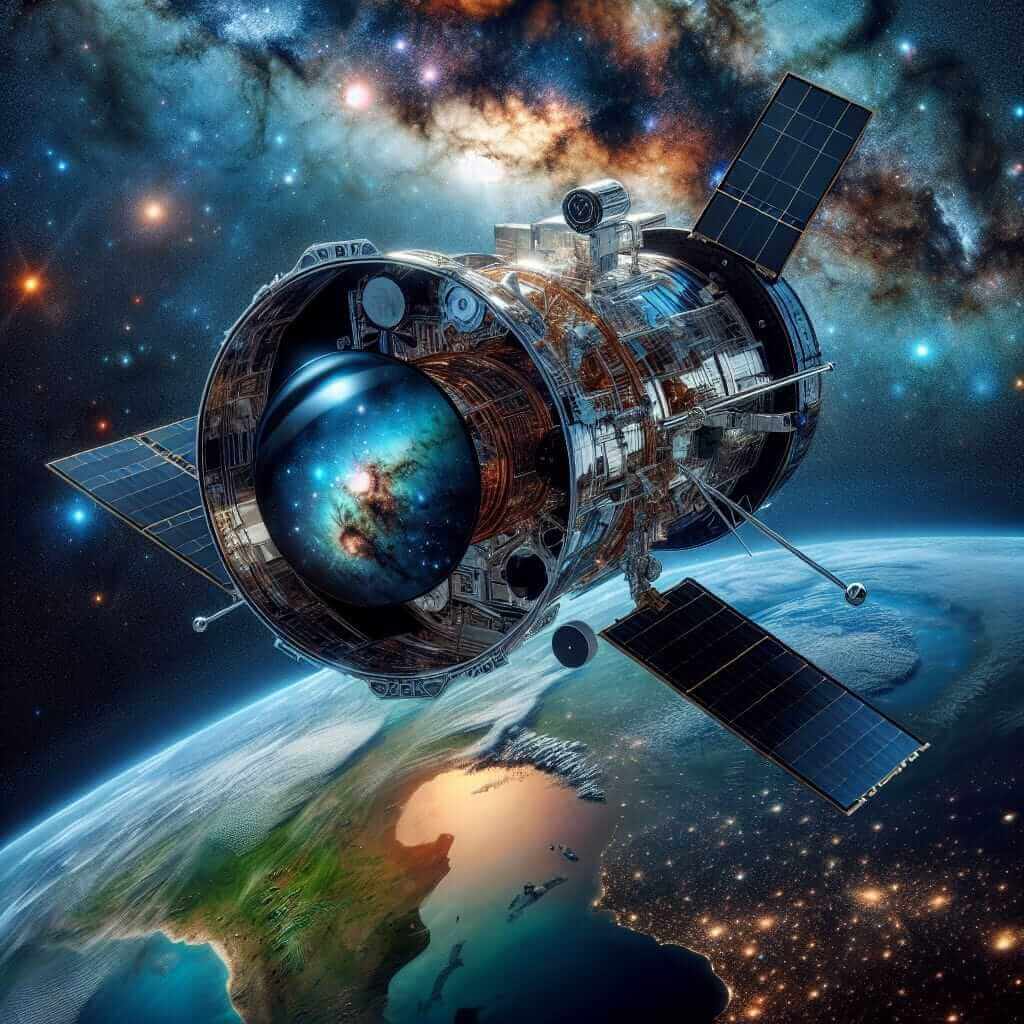The IELTS Reading section is a crucial component of the overall IELTS exam. The ability to comprehend and interpret written English is tested through a variety of texts and question types. Among popular topics in previous IELTS exams, space exploration – specifically the significant discoveries by the Hubble Space Telescope – has frequently appeared due to its scholarly value and wide public interest. This article will provide a detailed, practice reading passage along with related questions, answers, and vocabulary to assist students in preparing for the IELTS Reading section.
Reading Passage
Significant Discoveries by the Hubble Space Telescope
The Hubble Space Telescope (HST), launched in 1990, has revolutionized our understanding of the universe with its profound discoveries. The telescope orbits outside Earth’s atmosphere, allowing it to capture high-resolution images of the cosmos free from atmospheric distortion.
Over three decades, Hubble has made numerous significant contributions to astronomy. One of its most remarkable discoveries is the observation of distant galaxies, revealing the universe’s age to be approximately 13.8 billion years. This measurement was achieved through the study of Cepheid variables, which are stars used as standard candles to determine astronomical distances.
In addition to measuring the age of the universe, Hubble has provided compelling evidence for the existence of dark matter and dark energy. By observing galaxy clusters and their gravitational effects on light, astronomers have been able to infer the presence of dark matter, which does not emit or absorb light but can influence visible matter through gravity. Dark energy, on the other hand, is hypothesized to be responsible for the accelerating expansion of the universe, a phenomenon first detected through Hubble’s observations of distant supernovae.
Hubble’s contributions are not limited to galaxies and cosmic expansion. It has also studied exoplanets—planets outside our solar system. One notable discovery is the detection of water vapor in the atmosphere of the exoplanet WASP-12b. This finding is critical in the search for potentially habitable planets.
Moreover, Hubble has observed the life cycles of stars within the Milky Way galaxy. By capturing stunning images of nebulae, where stars are born, and supernova remnants, where stars meet their end, Hubble has provided insights into stellar evolution. For example, Hubble’s images of the Crab Nebula have helped scientists understand the physics behind supernova explosions and neutron stars.
In summary, the Hubble Space Telescope has significantly advanced our knowledge of the universe, uncovering the mysteries of cosmic age, dark matter, dark energy, exoplanets, and stellar life cycles. Its discoveries continue to shape our conception of the cosmos and guide future astronomical research.
Reading Questions
Multiple Choice
-
What is one of the key benefits of Hubble’s position in space?
a. It can capture images of the Sun.
b. It avoids atmospheric distortion.
c. It is closer to distant galaxies.
d. It is immune to gravitational effects. -
How did Hubble help determine the universe’s age?
a. By measuring dark energy.
b. By observing supernova remnants.
c. By studying Cepheid variables.
d. By detecting water vapor.
True/False/Not Given
- Hubble’s discovery of dark energy explained why some stars are brighter than others.
- Hubble has discovered life on at least one exoplanet.
- The Crab Nebula was observed to study dark matter.
Sentence Completion
- One of Hubble’s significant discoveries related to the accelerating expansion of the universe is the observation of __.
Summary Completion
Complete the summary using the list of words/phrases below.
dark matter, exoplanets, Cepheid variables, neutron stars, water vapor
Hubble has provided evidence for the existence of (7) through the observation of galaxy clusters. One notable finding related to (8) includes the detection of (9) ___ in the atmosphere of WASP-12b.
Answer Key and Explanations
-
b. It avoids atmospheric distortion.
- Explanation: The passage mentions that one of the key benefits of Hubble’s position in space is its ability to capture images free from atmospheric distortion.
-
c. By studying Cepheid variables.
- Explanation: The determination of the universe’s age was achieved through the study of Cepheid variables, as mentioned in the passage.
-
False.
- Explanation: The passage does not state that the discovery of dark energy explained the brightness of stars.
-
Not Given.
- Explanation: The passage mentions the discovery of water vapor on an exoplanet but does not state Hubble has discovered life.
-
False.
- Explanation: The Crab Nebula was observed to study supernova explosions and neutron stars, not dark matter.
-
dark energy
- Explanation: The passage states that dark energy is hypothesized to be responsible for the accelerating expansion of the universe.
-
dark matter
-
exoplanets
-
water vapor
Common Mistakes to Avoid
- Misinterpreting the information given in the passage.
- Confusion between “True,” “False,” and “Not Given” responses.
- Not paying attention to keywords in the questions and passage.
Vocabulary
- Revolutionized (v): /ˌrɛvəˈluːʃəˌnaɪzd/ – to change something fundamentally.
- Cepheid variables (n): /ˈsiːfiɪd ˈvɛri.əblz/ – a type of star used to measure distances in astronomy.
- Gravitational effects (n): /ˌɡrævɪˈteɪʃən əˈfɛkts/ – influences exerted by gravitational force.
- Nebulae (n): /ˈnɛbjʊliː/ – clouds of gas and dust in space where stars are born.
Grammar Focus
- Relative Clauses: Used to provide extra information about a noun, e.g., “Hubble, which was launched in 1990, has revolutionized our understanding of the universe.”
- Passive Voice: Used to emphasize the action rather than who is performing the action, e.g., “This measurement was achieved through the study of Cepheid variables.”
Advice for High IELTS Reading Scores
- Practice regularly with diverse reading materials.
- Focus on understanding the main ideas and details of passages.
- Improve vocabulary and grammar knowledge.
- Take timed practice tests to build speed and accuracy.

By adopting these practices and understanding the specificities of topics like the Hubble Space Telescope’s discoveries, candidates can significantly improve their performance in the IELTS Reading section.